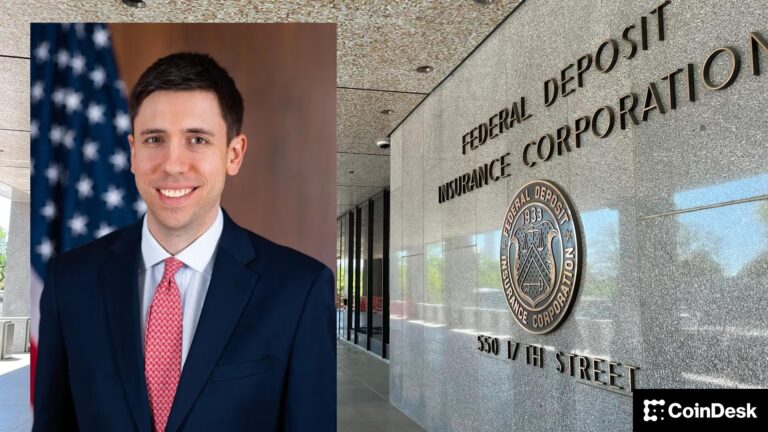Cryptocurrency Market Structure Rules Could Eventually Form the Basis for US Financial Governance: Le
Rules Regarding Cryptocurrency Market Structure Could Eventually Form the Basis for Financial Regulation in the US: Le
Tuongvi Le, a compliance specialist and former SEC lawyer, noted that the rest of the financial sector will likely move into a world governed by the new regulations expected.
Jesse Hamilton | Edited by Nikkhilesh De May 12, 2025, 4:29 PM

Key points:
- As traditional finance gets rid of the costly and time-consuming process of transacting securities and commodities, blockchain technology will help the industry overcome this barrier more quickly and with less risk, according to veteran attorney Tuongvi Le.
- Cryptocurrency legislation currently on the U.S. congressional agenda would also bring the traditional financial system into these future regulations, said Lee, who will speak at the Consensus 2025 conference in Toronto this week.
The crypto industry desperately needs U.S. regulation as the final critical piece of its global maturity puzzle, but industry veteran and compliance specialist Tuongvi Le, a former SEC lawyer, argues that the work of Congress and regulators is not just about the current digital asset space, but the foundations of the future financial system.
Lee, who has held senior legal and regulatory positions at Anchorage Digital, Bain Capital, and previously Worldcoin (now World Network), told CoinDesk that she expects the new rules being drafted for her former regulatory employer to eventually regulate businesses at the heart of the markets. Moving securities and commodities transactions in traditional finance to the blockchain is a significant step for an industry that has been stuck in outdated transaction processing methods entrenched in long-running approaches to clearing and settlement established decades ago.
“The convergence of cryptocurrency and commerce has already begun,” she said in an interview, outlining ideas she expanded on in a paper she published Monday with Austin Campbell of New York University. “Once the market structure and legislation for stablecoins is in place, things are really going to take off. It can be hard to wrap your head around the fact that you’re seeing a real transformation while it’s happening, to be honest, but I think we’ll look back on this the same way we looked at the internet, and how it fundamentally changed the way we communicate and interact as a society.” “I truly believe that blockchain technology and tokenization will transform the financial system,” added Li, who is scheduled to speak at the Consensus 2025 conference in Toronto this week.
So far, she’s impressed with the changes congressional lawmakers have made to the latest market structure bill, which builds on the previous session’s Financial Innovation and Technology for the 21st Century (FIT21) Act, calling it “much more practical, workable, and streamlined.” She praised its approach to bringing multiple transaction types under the umbrella of single trading platforms, as well as its outlook on blockchain maturity.
She noted that the bill currently being considered in Congress would be a “massive breakthrough” for the industry, but that U.S. financial agencies, including the SEC and the Commodity Futures Trading Commission, are already actively working.
“Even regulators acknowledge that blockchains can be used to create better
Источник



